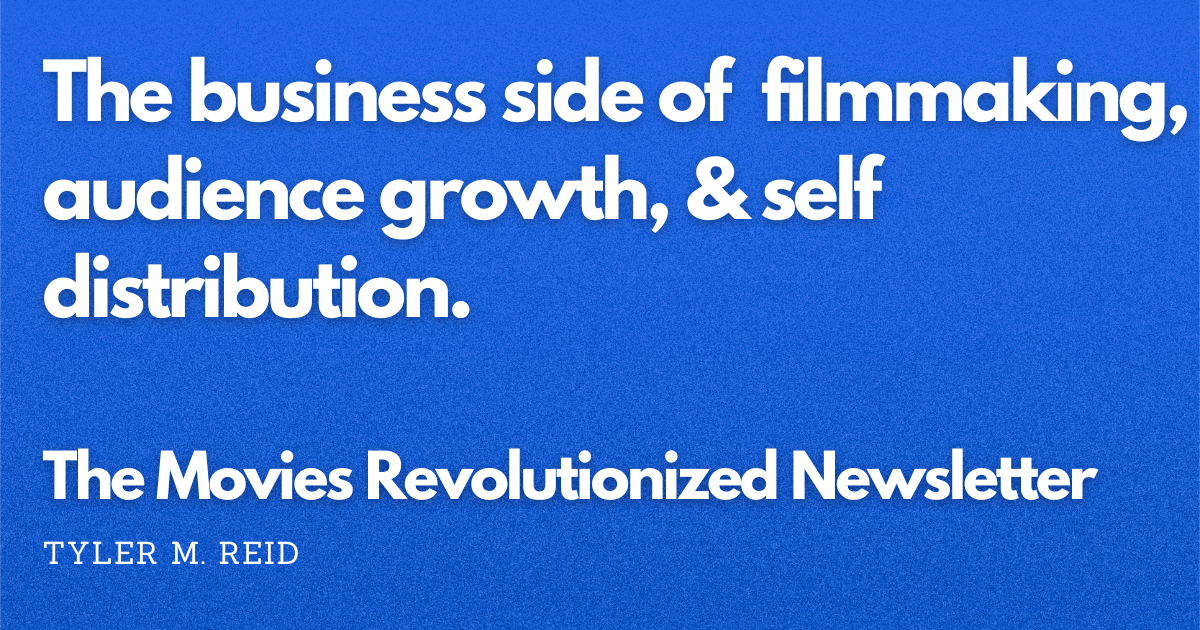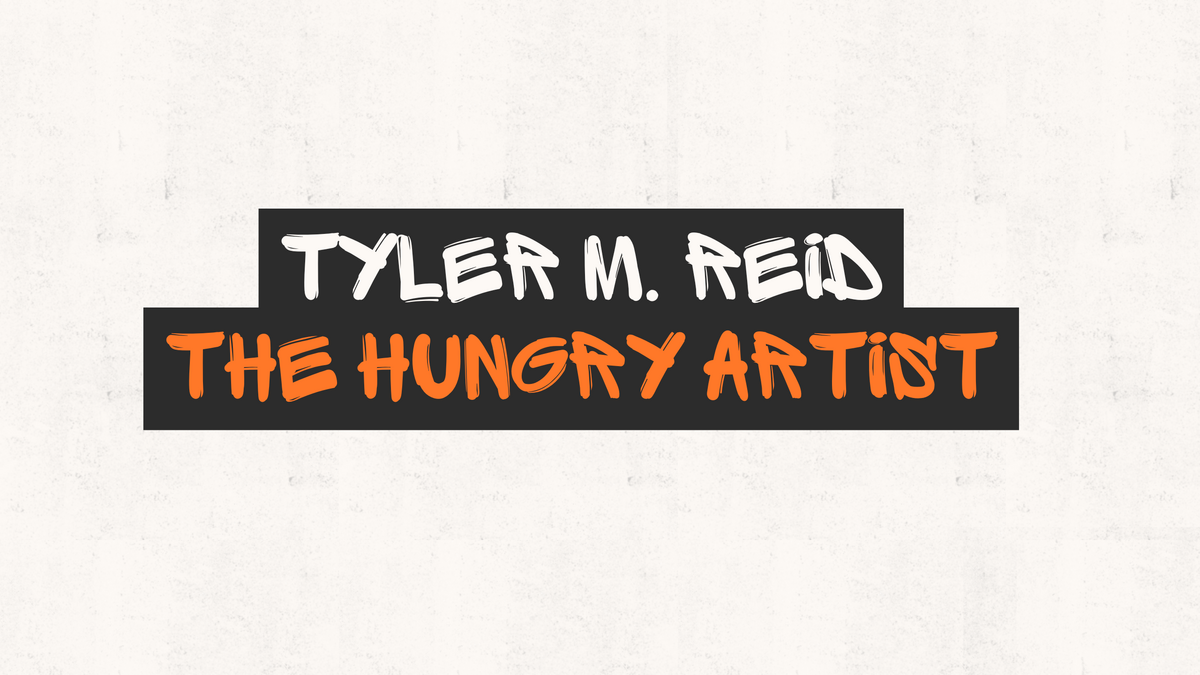We all know this scenario.
We want some recognizable actors for our film, so we are determined to make our first films so that actors see us as professional filmmakers that we can finally hire for our next film.
You think you have to make it some distance in your film career to finally get some actors that someone may recognize. However, without knowing it, you are missing out on a lot of potential for your film.
It is possible to get recognizable actors in your film now. Not only can you potentially find interested actors, you can use their name or “resume” as a way to raise money from financiers, sponsors, or even crowdfunding.
First, let’s define the kinds of actors I am talking about.
Have you ever watched a series or film and seen an actor play a very small part, maybe only in one scene, and thought to yourself - “I think I’ve seen this actor in something else”.
It’s one of those actors, that if someone would see them on the street they may say to themselves “I know I’ve seen that person somewhere but I can’t remember where”.
Those are some of the actors I am talking about here. It is not unlikely that you would see their name in a list of credits on different shows.
Maybe they played a bartender, then a taxi driver, then a police officer, then the next door neighbor, and so on. They have a couple of lines, maybe just a few scenes and then they go on to the next project. Working away at their craft and their career. Actors like this are GREAT, because they are just like you, and looking to make something great. What many filmmakers don’t realize is that those actors would LOVE the opportunity to be in an independent film. No one knows what film will change the trajectory of their career. Independent films for filmmakers are the same for actors - it can really set them on a new path of recognition and offers.
How do you find these actors?
My favorite approach is to just watch films and series. It’s a fun and useful hobby. Now when you are watching, pay attention to all the other actors. Maybe you liked the server at the restaurant in that one scene. Pause the movie, look up the credits on IMDb, find Restaurant Server as the role and then you’ll get the actors name. Click on their profile and most likely there will be a list of other films or shows they have worked on.
Create a spreadsheet, add the actors name to it, copy and paste their IMDb profile link for future reference. Do that a handful of times until you have a list that fills out possibilities for the lead roles in your film.
After that all you have to do is find the agent's contact information, most likely on IMDbPro and send the agent an email with your query about casting that actor in your film.
In that email it is okay to go ahead and send the logline and the script, since you want the actor to read the script. Agents want to help their actors find work.
This sounds expensive.
The best part about this process is that it is not as expensive as you may think.
First, it’s important to say that different actors/agents will have different negotiation tactics, or financial demands. You should just determine how much you believe you can afford to pay the actor, along with the other amenities with hiring them. To get the most out of this, it is best to hire the actor for the shortest period of time as possible.
Think of it in these terms - make sure you have enough to pay them some money, their hotel, travel and food.
You could get away with paying them $1000 a week, but try not to have them longer than just a couple of weeks. Maybe they have 10 filming days. That’s two weeks. Maybe 2 days or rehearsals and table reads and then 10-15 days of filming. Maybe one day contracted for ADR if needed during post.
Though it may be your most expensive element, it may be the element that is worth the cost for you. However, anytime I have had this conversation with filmmakers, they will say something like “I can’t hire a recognizable/professional actor because I can’t afford $30,000(or some other high number)”.
When in reality it may only cost you $5,000. It all depends of course on the actor, the number of days, hotel, travel, food, et cetera. However, the point is, you can definitely consider doing this for your next micro/low budget feature film.
Lastly, and probably most importantly here, is that at some point you will need to speak with the actor. It may be over a phone call, maybe facetime, but they will want to speak with the director of the film, maybe even producer too. Be prepared in how you plan on explaining your vision of the film, how you plan to operate the set, both creatively and logistically.
As a performer, the actor wants to make sure they are joining a project that they can really give their craft too. As a job, they also want to ensure their time on set isn’t going to be stressful, disorganized, or difficult.
There is a HUGE bonus with getting these kinds of actors.
Any recognizable face, even if people don’t know the name of the actor, can have big benefits when raising money. Investors will take you more seriously because they see you have an actor that has appeared in well known films or shows.
Sponsors may be interested in sponsoring the film because of the recognition attached.
For crowdfunding, it can definitely give a campaign some major momentum, especially if you can get the actor on camera just saying a couple quick things about being excited to be part of the project.
Pro tip! Have your entire crowdfunding campaign set up and ready to go! So that if you get an actor on board, you can get them to say a quick 15 second thing, throw their name and little video in your campaign and launch instantly!
If you are seeking private equity from investors or sponsorship money, you need some proof that you have this actor.
That is where the incredibly important and useful documents come in. This is the actor LOI and even better LOC.
LOI = Letter of Intent
LOC = Letter of Commitment
Let’s quickly define both of those because they sound similar but are quite a bit different.
LOI from the Actor:
An LOI from an actor shows their preliminary interest in participating in your film project. It outlines the basic terms and conditions under which the actor agrees to work on the film, such as their role, compensation, shooting schedule, and any other relevant details.
This letter serves as a formal expression of the actor's intent to collaborate on the project and can be used by the producer to demonstrate the actor's involvement to potential investors, distributors, or other stakeholders.
However, an LOI from an actor is typically non-binding, meaning the actor may still have the option to withdraw from the project without legal repercussions until a formal contract is signed.
LOC from the Actor:
In some cases, particularly for high-profile actors or projects with significant financial stakes, an actor may be asked to provide a Letter of Commitment. This letter signifies a more concrete commitment from the actor to participate in the film.
Similar to an LOI, an LOC from an actor outlines the terms and conditions of their involvement in the project, including their role, compensation, and other relevant details.
However, unlike an LOI, an LOC may carry more weight in terms of legal commitment, depending on the specific language and agreements outlined in the letter. It indicates a firmer commitment from the actor to fulfill their obligations and can provide greater assurance to the producer and other stakeholders.
Both an LOI and an LOC from an actor serve to outline their involvement in a film project, an LOI is typically a preliminary expression of interest and is non-binding, whereas an LOC may represent a more formal and legally significant commitment from the actor to participate in the project.
An investor will prefer an LOC over an LOI but that doesn’t mean they won’t be interested in your film if you only have an LOI.
It is important that if you want to secure funding then you get an LOI or LOC. However, if you are self funding, using crowdfunding, or even sponsorships, then it is not necessary that you have an LOI or LOC. However, if you are making a promise to the sponsor that, that specific actor will most likely or definitely be in your film, than you should have with the LOI or LOC, depending on the type of promise you made to the sponsor. If you make no promise to the sponsor about the type of cast, then you do not need to worry about it.
Also, as I like to remind filmmakers, you should consult with legal counsel before asking anyone to sign any kind of agreements. They will also help you in making sure you have the specific wording needed in your LOI or LOC all depending on the conversations you’ve had with the actor, their agent and/or manager.
Be bold in your goals.
As filmmakers, you may not get a lot of opportunity to make a feature film. So when you are making one, do everything you can to make it as great as possible. It’s okay if you have a budget less than $100,000 - that is enough to get an actor you like. If you feel like it will be hard to afford an actor you like, figure out where you can save money in the budget. Your vision, the story, and the actors delivering that story are what make a great film. Put the energy, money, and focus into the core elements that make your film great.
There are two ways I can help you.
I give away a free bundle with example pitches, templates, and interactive budgets that you can grab right here.
If you are on your journey to make your first short film, documentary, or even micro budget feature, this course is designed to help you find money, grow your audience, and earn an income.


